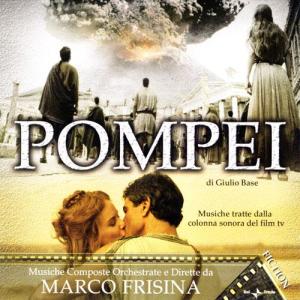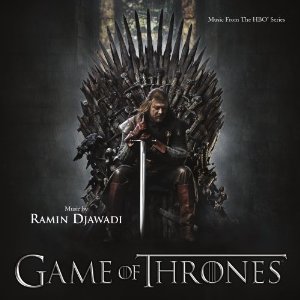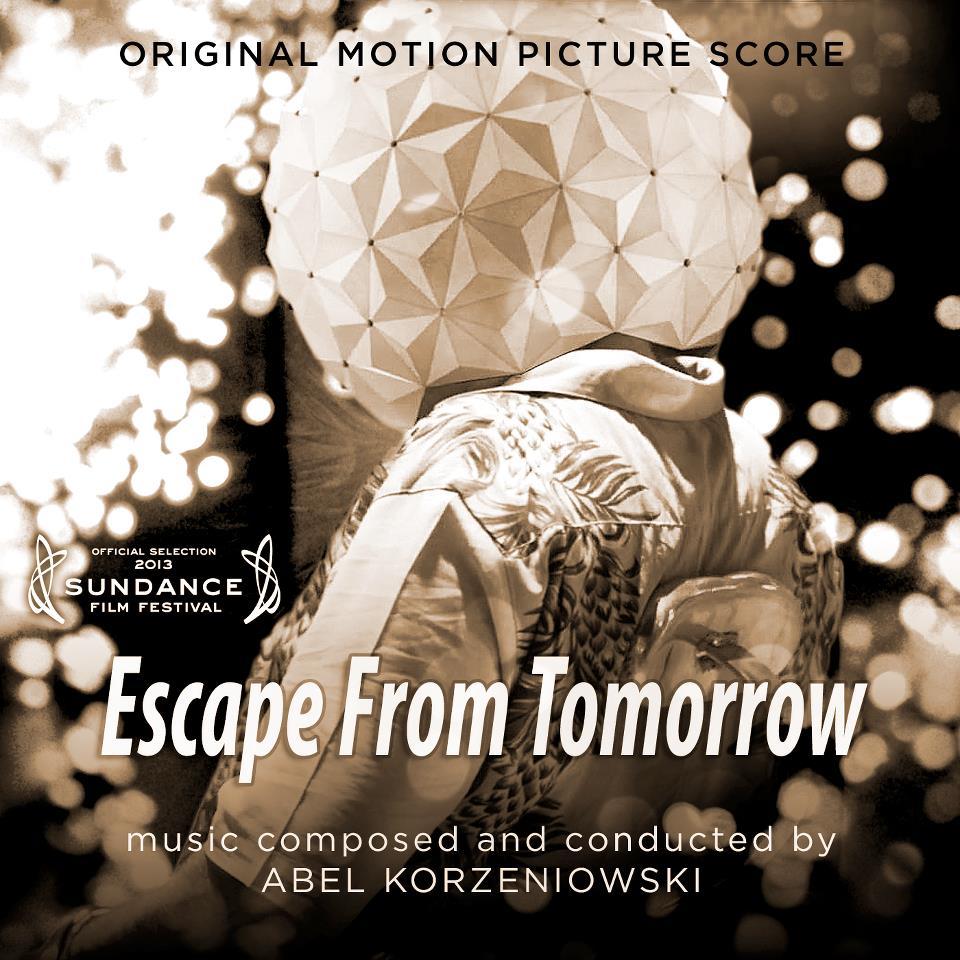Hugo (Howard Shore)
Posted: November 30, 2011 Filed under: Howard Shore | Tags: fantasy, Howard Shore, Hugo, review, score 2 CommentsFinal Musings: Howard Shore delivers a magical score that is infused in French culture. The abundance of charming themes and the wealth of magical material puts this as arguably one of the best fantasy scores of the year. This is no Lord of the Rings, but it is a touching score with heart and soul in its innocence and childish whimsy. The heavy French elements may be deterring to some, but bear in mind that this is a score that requires time to appreciate. In the end, Howard Shore once again masterfully proves the extent of his versatility.
 Brian Selznick’s 2008 historical fiction novel, The Invention of Hugo Cabret may seem intimidating in its size, but it is really more pictures than words. Regardless, the novel’s touching story of a young boy who tries to understand his purpose in the world while wandering as an orphan in Paris’ infamous Gare Montparnasse has gained great levels of popularity amongst mainstream audiences. Inspired by the works and life events of early film pioneer Georges Méliès, the novel creatively portrays the narrative against a beautiful Parisian backdrop. Martin Scorcese’s 2011 film adaption of the novel would be his first 3D venture. Considering Scorcese had rarely done a family film (if ever) of such vibrant tone and childish whimsy, audiences took the 3D and the overbearingly buoyant nature of trailer as a sign dictating that the legendary director had finally sold out. However, Scorcese ended up proving that even when out of his comfort zone, he continues to maintain his excellent standards in filmmaking. This of course meant that critics loved it and by no means did the 3D hinder the great experience (unfortunately the same cannot be said of the majority of films these days). Arguably Scorcese’s most colourful film, the movie is a touching piece that is immersed in the man’s own childhood and premature fondness for films. Accompanying the film musically is the Academy Award winning composer Howard Shore who has emerged from the recurring collaboration between Scorcese and himself. Read the rest of this entry »
Brian Selznick’s 2008 historical fiction novel, The Invention of Hugo Cabret may seem intimidating in its size, but it is really more pictures than words. Regardless, the novel’s touching story of a young boy who tries to understand his purpose in the world while wandering as an orphan in Paris’ infamous Gare Montparnasse has gained great levels of popularity amongst mainstream audiences. Inspired by the works and life events of early film pioneer Georges Méliès, the novel creatively portrays the narrative against a beautiful Parisian backdrop. Martin Scorcese’s 2011 film adaption of the novel would be his first 3D venture. Considering Scorcese had rarely done a family film (if ever) of such vibrant tone and childish whimsy, audiences took the 3D and the overbearingly buoyant nature of trailer as a sign dictating that the legendary director had finally sold out. However, Scorcese ended up proving that even when out of his comfort zone, he continues to maintain his excellent standards in filmmaking. This of course meant that critics loved it and by no means did the 3D hinder the great experience (unfortunately the same cannot be said of the majority of films these days). Arguably Scorcese’s most colourful film, the movie is a touching piece that is immersed in the man’s own childhood and premature fondness for films. Accompanying the film musically is the Academy Award winning composer Howard Shore who has emerged from the recurring collaboration between Scorcese and himself. Read the rest of this entry »
Pompei (Marco Frisina)
Posted: November 25, 2011 Filed under: Marco Frisina | Tags: drama, historical, Marco Frisina, melodrama, pompei, score 1 CommentFinal Musings: Relatively unknown composer, Marco Frisina delievers a hidden gem. With a beautiful theme along the lines of Rózsa’s romantic work, this score will sell to all lovers of harmonic and melodramatic beauty. Although keep in mind, you will not find ambitious action music or any glorified heroic music here. It may not have the ethnic flair or the epic scope of its superior predecessors in the genre, but the thematic beauty of this score alone will make this a solid score to enjoy.
 It’s clear that the legacy of Mt. Vesuvius has left its mark on human civilization. After all, who doesn’t love a good disaster story? Accordingly, the infamous tale of the brutal destruction of Pompeii, Italy (caused by the volcanic eruption of Mt. Vesuvius), has spawned a vast amount of incarnations in film, literature and music. Amongst the lesser-known cinematic takes on these is the 2007 Italian miniseries, Pompei. The story covers a man who comes back to find his wife sold to slavery only to be followed by the mysterious murder of her master. The protagonist must figure out the true murderer and the unveiling conspiracy in order to save his wife while Vesuvius promptly prepares to explode. The show was not received as well as one would assume, but this largely obscure adaption does present a delightful gem of a score. Read the rest of this entry »
It’s clear that the legacy of Mt. Vesuvius has left its mark on human civilization. After all, who doesn’t love a good disaster story? Accordingly, the infamous tale of the brutal destruction of Pompeii, Italy (caused by the volcanic eruption of Mt. Vesuvius), has spawned a vast amount of incarnations in film, literature and music. Amongst the lesser-known cinematic takes on these is the 2007 Italian miniseries, Pompei. The story covers a man who comes back to find his wife sold to slavery only to be followed by the mysterious murder of her master. The protagonist must figure out the true murderer and the unveiling conspiracy in order to save his wife while Vesuvius promptly prepares to explode. The show was not received as well as one would assume, but this largely obscure adaption does present a delightful gem of a score. Read the rest of this entry »
Agora (Dario Marianelli)
Posted: November 21, 2011 Filed under: Dario Marianelli | Tags: Agora, Dario Marianelli, historical epic, melodrama, score Leave a commentFinal Musings: Dario Marianelli delivers his finest score and arguably the best of 2009. The extraordinary scope of this textural epic is evident in its rousing orchestral and choral force. The diversity of the score in its ethnic instrumentation is commendable. And praise must be given for the technical aspects of the score that so brilliantly aid the film in conveying its many complex messages. It may not appeal to listeners looking for easily recognizable themes, but this score needs time to grown on you (as all great scores do). A marvelous feat for any composer.
 In 2009, Alejandro Amenabar’s historical epic, Agora, was let loose on the world. Due to its controversial nature however, much of North America did not have the opportunity to experience it (those who did, benefited from its limited release in the US). A shame, as the film is a unique and intellectual venture into the genre of ‘toga movies’. Historically, the film covers the fall of classical antiquity, the Christianization of the Roman Empire and the destruction of the great library of Alexandria. However, the film largely expands upon the life of the brilliant female philosopher and astronomer, Hypatia. The film’s plot follows Hypatia’s discovery of the elliptical shape of our orbits, the life of her former slave Davus along with Hypatia’s disciples and the religious turmoil that the philosopher caused with her theories that unfortunately led to her death by a mob (although this is portrayed differently for dramatic effect in film). By utilizing these great historical events and the beautiful landscape of the ancient city of Alexandria, Amenabar makes powerful statements about the dangers of religious conflict, the relationship between faith and science and importance of furthering scientific ventures. It altogether creates a great film with excellent actors (primarily Rachel Weisz), beautiful cinematography, grand sets and intellectual depth. The use of extensive symbolism throughout the novel carries the viewers along with Hypatia’s journey into the realization of the wonders of the universe. One must commend the film in its epic scope and attempt to cover these many intellectual statements effectively. The film however, was met with mixed reactions due to its historical inaccuracies and its negative yet clearly controversial portrayal of Christians. Moreover, the many concepts were not tied together as well as it could have been thus resulting in a lack of cohesiveness in the film. Regardless, a great film with this kind of scope needed a powerful musical atmosphere to guide the viewers on the emotional journey. And on all accounts, Marianelli delivers with an extraordinary score that is arguably his best yet. Read the rest of this entry »
In 2009, Alejandro Amenabar’s historical epic, Agora, was let loose on the world. Due to its controversial nature however, much of North America did not have the opportunity to experience it (those who did, benefited from its limited release in the US). A shame, as the film is a unique and intellectual venture into the genre of ‘toga movies’. Historically, the film covers the fall of classical antiquity, the Christianization of the Roman Empire and the destruction of the great library of Alexandria. However, the film largely expands upon the life of the brilliant female philosopher and astronomer, Hypatia. The film’s plot follows Hypatia’s discovery of the elliptical shape of our orbits, the life of her former slave Davus along with Hypatia’s disciples and the religious turmoil that the philosopher caused with her theories that unfortunately led to her death by a mob (although this is portrayed differently for dramatic effect in film). By utilizing these great historical events and the beautiful landscape of the ancient city of Alexandria, Amenabar makes powerful statements about the dangers of religious conflict, the relationship between faith and science and importance of furthering scientific ventures. It altogether creates a great film with excellent actors (primarily Rachel Weisz), beautiful cinematography, grand sets and intellectual depth. The use of extensive symbolism throughout the novel carries the viewers along with Hypatia’s journey into the realization of the wonders of the universe. One must commend the film in its epic scope and attempt to cover these many intellectual statements effectively. The film however, was met with mixed reactions due to its historical inaccuracies and its negative yet clearly controversial portrayal of Christians. Moreover, the many concepts were not tied together as well as it could have been thus resulting in a lack of cohesiveness in the film. Regardless, a great film with this kind of scope needed a powerful musical atmosphere to guide the viewers on the emotional journey. And on all accounts, Marianelli delivers with an extraordinary score that is arguably his best yet. Read the rest of this entry »
The Adventures of Tintin (John Williams)
Posted: November 19, 2011 Filed under: John Williams | Tags: adventure, fantasy, John Williams, score, Tintin Leave a commentFinal Musings: A classic Williams adventure score with great intellectual depth. It may not have the concert arrangements we expect of the maestro, but this is one of the legend’s best scores in recent years. Williams is clearly still at the top of his game and he once again shows his competition how film scoring is really done.
 When I got the CD, I thought to myself “Its finally here”! It’s been a while since we’ve seen the maestro be an active player in the industry. Having only composed a single score in the last 5 years, the film score world suffered from a drought. Being an ardent devotee of John Williams, you can imagine the terrible agony I had endured during those dark times. Although we did have Indiana Jones 4 to satisfy our thirst for some time, 3 years went by without the maestro in the film score world. So the question is…was it worth the wait? YES! And no doubt about it!
When I got the CD, I thought to myself “Its finally here”! It’s been a while since we’ve seen the maestro be an active player in the industry. Having only composed a single score in the last 5 years, the film score world suffered from a drought. Being an ardent devotee of John Williams, you can imagine the terrible agony I had endured during those dark times. Although we did have Indiana Jones 4 to satisfy our thirst for some time, 3 years went by without the maestro in the film score world. So the question is…was it worth the wait? YES! And no doubt about it!
I’ve been looking forward to the film for quite a long time as well. Steven Spielberg and Peter Jackson being amongst my favourite directors, I was quite excited to see what they would come up with. But let me say it here and now that I know almost next to nothing about Belgian comics by Herge. I’ve heard about them and even once skimmed over the one about Congo in French, but I honestly don’t know much about the comics, so forgive any inaccuracies in my analysis in accordance with context. Read the rest of this entry »
Game of Thrones (Ramin Djawadi)
Posted: November 19, 2011 Filed under: Ramin Djawadi | Tags: atmospheric, fantasy, Game of Thrones, Ramin Djawadi, score 1 CommentFinal Musings: A weak and even dull score but a rather surprisingly effective effort by Djawadi with some good highlights. It may be an unpleasant experience for fans of fantasy music, but its Djawadi’s best and leaves solid potential for a sequel.
 George R.R. Martin’s A Game of Thrones was first published on August 6, 1996. Since then, the series has garnered an enormous fanbase. The reception to this hit series has been enormously positive with some critics even daring to hail him as the “American Tolkien”. I myself have onlyrecently been exposed to this literature and boy was I blown away. It was certainly not up there with Lord of the Rings (then again, nothing really has reached that high for me) but it was definitely one of the most original and enticing fantasy works I’ve been exposed too.
George R.R. Martin’s A Game of Thrones was first published on August 6, 1996. Since then, the series has garnered an enormous fanbase. The reception to this hit series has been enormously positive with some critics even daring to hail him as the “American Tolkien”. I myself have onlyrecently been exposed to this literature and boy was I blown away. It was certainly not up there with Lord of the Rings (then again, nothing really has reached that high for me) but it was definitely one of the most original and enticing fantasy works I’ve been exposed too.
A Game of Thrones isn’t your typical fantasy. It’s an intricate tapestry of multiple sub-plots and storylines all weaving together for a larger purpose. You don’t get your share of optimism and wonder (instead you get a bunch of plot twists). No. George R.R. Martin provides a deep sense of realism and paints the brutal nature of the realistic Middle Ages. It is a dark story about the struggle for power, and the corruption of the mortal world. You don’t get your share of noble and honest characters. But that’s one of the things that makes A Song of Ice and Fire such a great masterpiece. Instead of elaborating more on it however, I suggest you go read it yourselves (for those who haven’t got the opportunity to do so). Read the rest of this entry »




